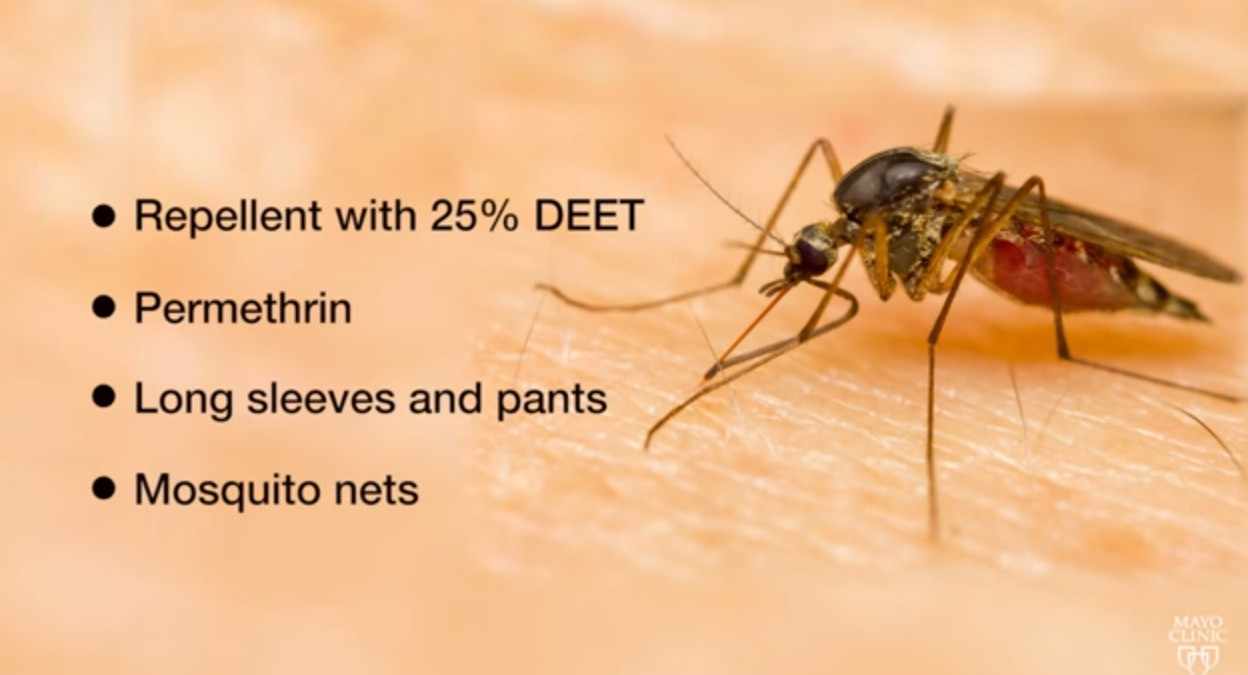-
Women’s Wellness: Learn more about Zika if you’re traveling

The Zika infection in pregnant women can cause severe birth defects in their babies. So the U.S. Centers for Disease Control and Prevention (CDC) recommends that all pregnant women avoid traveling to areas where there is an outbreak of Zika virus.
Infectious diseases internist Dr. Mary Jo Kasten, of the Mayo Clinic Travel Clinic, says, “The current recommendation is men should not get a woman pregnant for six months, after the man has traveled to a Zika area, and women should not get pregnant for eight weeks, if they’ve traveled to a Zika area.”
Watch: Dr. Kasten discusses Zika issues related to women traveling.
Journalists: Broadcast-quality sound bites with Dr. Kasten are in the downloads.
Dr. Kasten adds, "If there is no way you can avoid traveling — you just have to go there for whatever reason, and there’s a chance of pregnancy in the future — then you just need to do the very best you can to avoid getting bit by the mosquitoes.” She suggests using a repellent with deet. “My favorite is a deet-containing insect spray, because you can spray that all over your clothing, over your exposed skin, get some on your hands, put it up around your face. Reapplying that about every four to six hours. You can cover up with light, long-sleeved clothing, and you use deet repellent on top of that." She says you can also use clothing that’s been pretreated with an insecticide called permethrin.

Dr. Kasten says she has female patients who ask if they're at risk. She says age is a strong factor. “If I had an adult patient saying 'I’m afraid to go to Brazil, because I might get Zika' but they’re a 50-year-old woman, and there’s no chance of them getting pregnant, I would say, 'You don’t really need to worry.' Your risk of getting something like Dengue or other things is much higher than getting sick from some other mosquito-borne illness or other travel-related problem than Zika," says Dr. Kasten. "However, if you were a 24-year-old woman interested in getting pregnant in the next six months, then Zika needs to really be on your radar, and you should really reconsider.”
“The current recommendation is men should not get a woman pregnant for six months, after the man has traveled to a Zika area, and women should not get pregnant for eight weeks, if they’ve traveled to a Zika area.”
- Dr. Mary Jo Kasten
Dr. Kasten adds, “It’s not transmitted as frequently through sex as through mosquito bites, but we do want women who have a partner who has traveled to Zika virus places to know that they can potentially get Zika through sex." Again, the recommendation is if women travel to a Zika-endemic area, they should not get pregnant for eight weeks. If their partner, or any sex partner, has traveled to a Zika-endemic area, it's recommended the woman not get pregnant for six months. Dr. Kasten says the couple should especially use condoms (and other forms of birth control) to try to avoid pregnancy and acquiring Zika from the male partner.
As researchers work on a vaccine, Dr. Kasten says it appears they’re making faster progress with Zika than with other vaccines. "They’ve been working on Dengue virus vaccines for years and years, but it seems like they’re probably closer to having a Zika virus vaccine that might be able to be tested, as I understand it, than Dengue virus vaccine."
Related information:
- Zika prevention
- Should women wait to get pregnant if traveling to Zika-endemic area?
- Scientists recommend Zika research plan
- Zika travel information from the CDC








